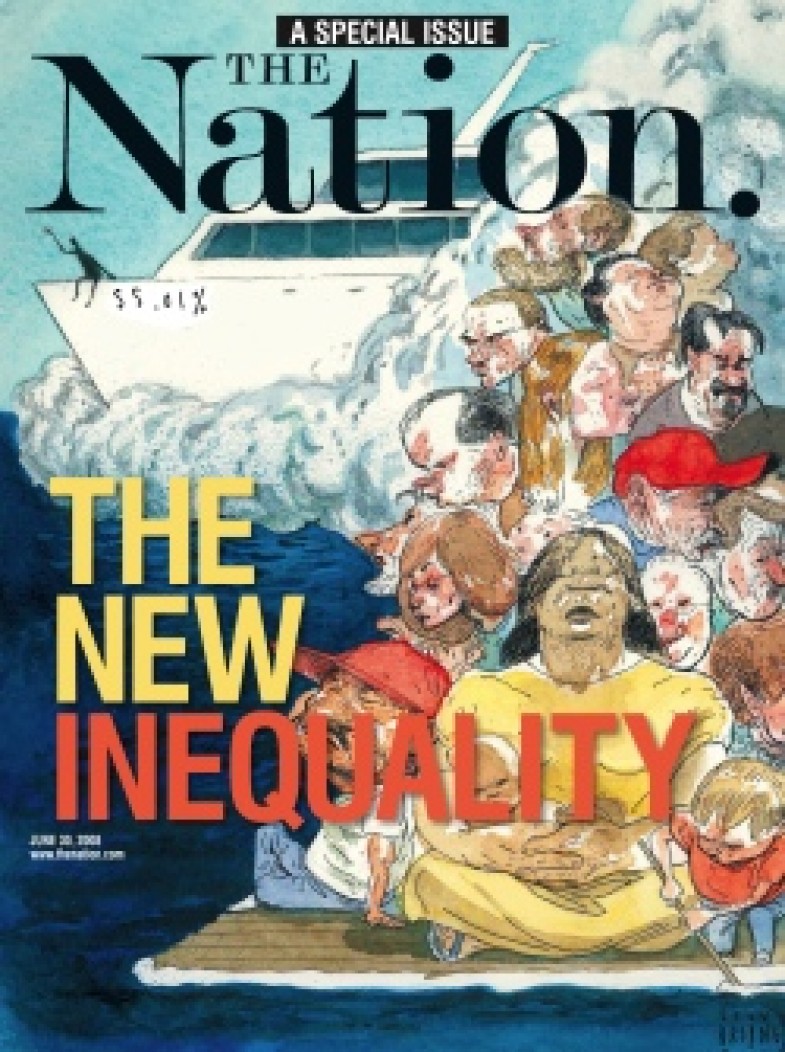On the Commons Fellow Chuck Collins co-edited a special issue of The Nation about economic inequality, examining how “over the past three decades, market-worshipping politicians and their corporate backers have engineered the most colossal redistribution of wealth in modern world history, a redistribution from the bottom up, from working people to a tiny global elite.”

This massive rise in inequality has been fueled by an unprecedented plundering of the commons. Assets once commonly held by communities (such as rainforests) and nations (such as telecommunications systems) have been grabbed up by global corporations for the benefit of their rich investors.
Inequality is often justified as simply the market rewarding the most enterprising people. But as Collins and his colleague at the Institute for Policy Studies Dedrick Muhammad have pointed out, “No one builds wealth alone…private wealth (savings, homeownership, investment wealth) is derived from a combination of individual activity and the commons.”
Indeed, such a huge disparity of wealth undermines the very idea of the commons, which is based on longstanding traditions of sharing and cooperative management of the resources upon which we all depend.
The Nation’s special issue lays out the situation in vivid terms with a series of charts and features illuminating commentary from leading economic analysts Barbara Ehrenreich (author of Nickel and Dimed) and John Cavanagh (director of the Institute for Policy Studies).
Collins directs the Institute for Policy Studies’s Working Group on Extreme Inequality to draw attention to how the growing concentration of wealth stymies efforts to solve pressing economic and environmental problems.



